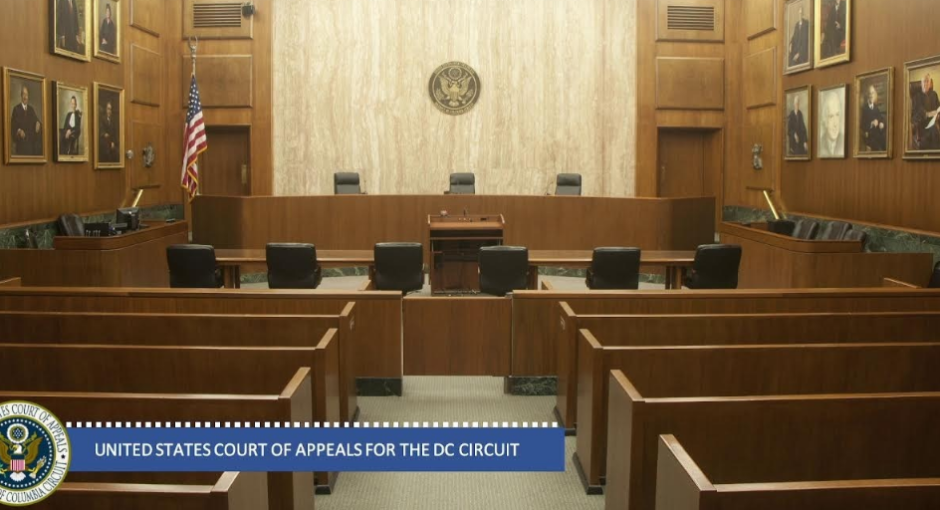Groups representing health centers, HIV/AIDS clinics, and hospitals asked federal appeals courts in Philadelphia and Washington, D.C., this week to hold that drug manufacturers must give covered entities 340B discounts on drugs when entities use contract pharmacies to fill prescriptions for their patients.
Drug manufacturers contend that the 340B statute and their 340B drug pricing agreements with the federal government “do not require them to offer 340B discounted drugs if those drugs are distributed through a contract pharmacy. [They] are wrong,” the National Association of Community Health Centers (NACHC) and Ryan White Clinics for 340B Access (RWC-340B) said in May 16 briefs filed in the U.S. Third Circuit Court of Appeals in Philadelphia and in the U.S. Court of Appeals for the District of Columbia Circuit.
“The 340B statute governs pricing, not distribution,” NACHC and RWC-340B said. “It unambiguously requires drug manufacturers to provide covered entities with discounts on all covered outpatient drugs. The statute’s silence on drug distribution generally, and contract pharmacies in particular, does not create ambiguity. The statute does not limit distribution at all, and drugs in this country are distributed by many means, including contract pharmacies. The statute does not allow drug manufacturers to limit or restrict their own obligation to provide discounts. Instead, the statute intentionally leaves distribution decisions to covered entities as governed by preexisting state and federal regulations.”
Five hospitals groups—340B Health, the American Hospital Association (AHA), America’s Essential Hospitals (AEH), the Association of American Medical Colleges (AAMC), and the Children’s Hospital Association (CHA)—similarly told the two appeals courts on May 16 and May 17 that the language of the 340B statute “requires drug manufacturers to provide discounts on 340B drugs purchased by covered entities and dispensed by contract pharmacies without imposing conditions.”
“That drug manufacturers may not charge more than the ceiling price for 340B drugs purchased by covered entities is the core requirement of the statute and program, and the central question in this case is whether the drugs subject to [manufacturers’] policies are ‘purchased by’ covered entities,” the hospital groups said. “They are.”
“The continued viability of the 340B drug discount program is at stake in these cases,” the groups, they added.
Amicus Briefs
The five hospital groups jointly and NACHC and RWC-340B jointly filed a total of four friend of the court briefs in two legal actions.
The first action involves drug manufacturers’ Novartis and United Therapeutics’ conditions on 340B pricing when contract pharmacies are involved. A federal district judge decided those cases together in November. The cases are being argued and decided together again and currently are before the federal appeals court in Washington, D.C.
The second legal action involves Sanofi and Novo Nordisk’s 340B contract pharmacy restrictions. Those cases also have been consolidated. They are now before the federal appeals court in Philadelphia. The third circuit court recently folded in a third case involving AstraZeneca’s contract pharmacy policy. A federal district court decided that case in March. A different lower court decided the Sanofi and Novo Nordisk cases together in November.
Lower Court Decisions
The lower court in Novartis and United Therapeutics’ cases ruled that the 340B statute does not prohibit drug makers from attaching any conditions to 340B sales. But, the judge said, the statute does not permit all such conditions. Any future federal enforcement action against the companies’ 340B contract pharmacy policies “must rest on a new statutory provision, a new legislative rule, or a well-developed legal theory that Section 340B precludes the specific conditions at issue here,” the judge said.
The lower court in Sanofi and Novo Nordisk’s cases ruled that the companies’ contract pharmacy policies violate the 340B statute. But it declined to decide whether the 340B statute permits covered entities to use multiple or unlimited contract pharmacies. The court vacated the government’s May 17, 2021, findings that the companies owe credits or refunds to covered entities and face civil monetary penalties “to the extent that such determinations may depend on the number of permissible contract pharmacy arrangements under the 340B statute.”
Like the lower court in Novartis and United Therapeutics’ cases, the court in the Sanofi and Novo Nordisk’s cases suggested it would be best if Congress were “to step in and expressly state its intentions for the direction of the 340B statute, as well as HHS’ role in administering it.” The lower court in a fifth related case involving drug manufacturer Lilly’s 340B contract pharmacy restrictions made a similar remark in its decision in that case in October 2021.
Click here for NACHC and RWC-340B’s brief in Novartis and United Therapeutics’ cases and here for their brief in the Sanofi and Novo Nordisk’s cases.
Click here for the hospital groups’ brief in Novartis and United Therapeutics’ cases and here for their brief in the Sanofi and Novo Nordisk’s cases.


